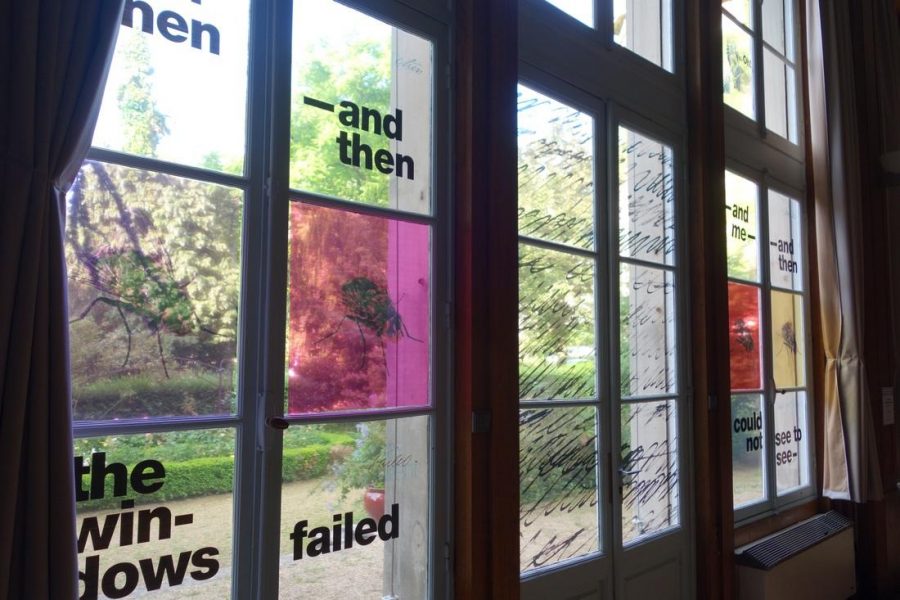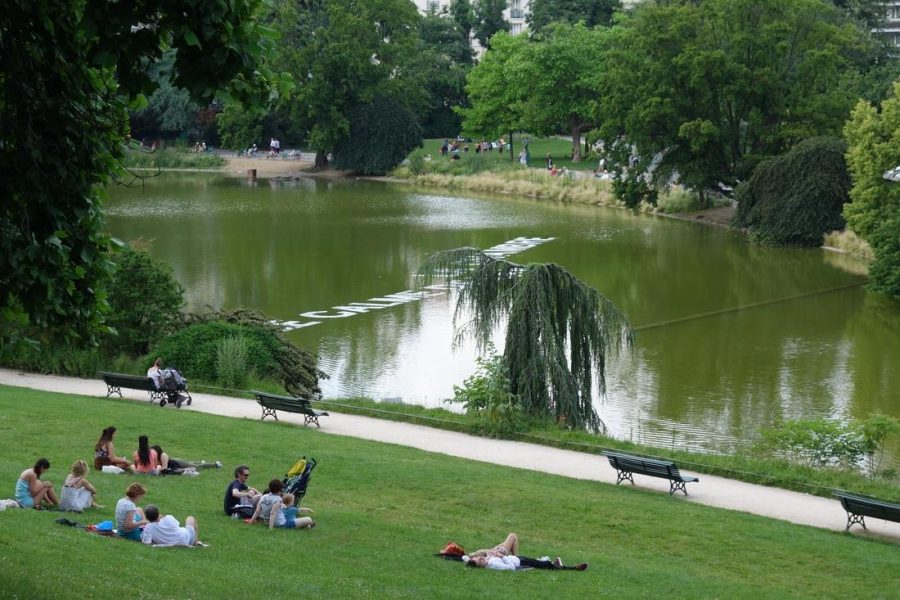As Professor Clark Lunberry descended the staircase from the fourth floor of the UNF Library, he looked through the colossal windows with the lake spread out below him and appreciated the dramatic setting the site provided.
As he gazed at the water, he thought to himself, “That would be a really interesting place to put language.” Continuing down the stairs, he brushed the idea off as a crazy thought just passing through his head.
Lunberry was teaching a class on alternative sites and spaces for poetry and language that semester in 2007. In class, he posed the following question: “Where else can poems exist?”
One day, half joking, he brought up the idea to his students and asked them, “What if we were to write a poem on water?” His question sparked interest.
Lunberry has been teaching English at UNF for 12 years, during which time he has fused his attraction to visual arts and mid-century art movements with his love of language. The question Lunberry posed above is an accurate representation of his installations. Lunberry’s art consists of words in the world, just as the words on the page of a children’s book.
His work has been displayed across the globe, most recently in Paris, France this past June. He had completed two previous events in Paris. When one of his past sponsors was asked to find an artist for an international conference on American poet Emily Dickinson, Lunberry was the first to come to mind.
“I’m always eager to go back to Paris if I can. It’s a wonderful, historic, and beautiful city,” Lunberry said, “but it also just really converges with what I teach and what I do.”
When formulating ideas for an installation for the international conference, he kept Dickinson’s poetry about rooms and windows close to mind, particularly the poem “I heard a Fly buzz – when I died.”
He was producing work for a space he had not seen, yet he kept his work site-specific. After researching the location of the conference, Lunberry realized there was a park with a pond located just across the street. Eager to put words on the pond to accompany the words he planned to put on the conference venue windows, he attempted to get permission to expand his installation. Leaving this task to his sponsor in Paris, Lunberry hoped his idea would get through what he calls layers of bureaucracy.
He packed his materials and flew to Paris anticipating he would be permitted to expand his project. Lunberry didn’t know until the day after he arrived in Paris that he would be allowed to transform his idea into reality.
“So I arrived in Paris not sure if I was going to be able to do anything on the water. I had all the materials and I had done all the preparation, but still there wasn’t the final permission,” Lunberry said of the addition to the Paris installation. “In retrospect, it’s a fun story. It was nerve-racking at the time, and it was very complicated — mostly for my sponsor.”
His work on windows and water all started with his vision at UNF in 2007. His crazy idea, to put language onto water, was quite a challenge to translate into actual being. After several weeks of working with students to figure out the practicalities of getting words onto water, Lunberry’s first installation was set up on the very lake he looked out onto from the Carpenter Library.
“The letters are cut out from thick plastic sheeting. They are then clipped to twine with wooden clothespins,” Lunberry said. “The lines of twine are tied to wooden stakes on opposite shores. It’s that simple.”
He later went back and added words to the windows of the library stairwell, where he initially conceived the idea, thereby linking the two sites. He wanted to add another dimension to the project, a more immediate dimension.
“The UNF [library] situation is really ideal, just because of the way it’s set up. It was great. It was what we would now call site-specific,” Lunberry said. “The site, the setting, gave me the ideas for how to do it. It wouldn’t have happened otherwise, I don’t think.”
Find more of Lunberry’s work on his website.
—
For more information or news tips, or if you see an error in this story or have any compliments or concerns, contact editor@unfspinnaker.com.









